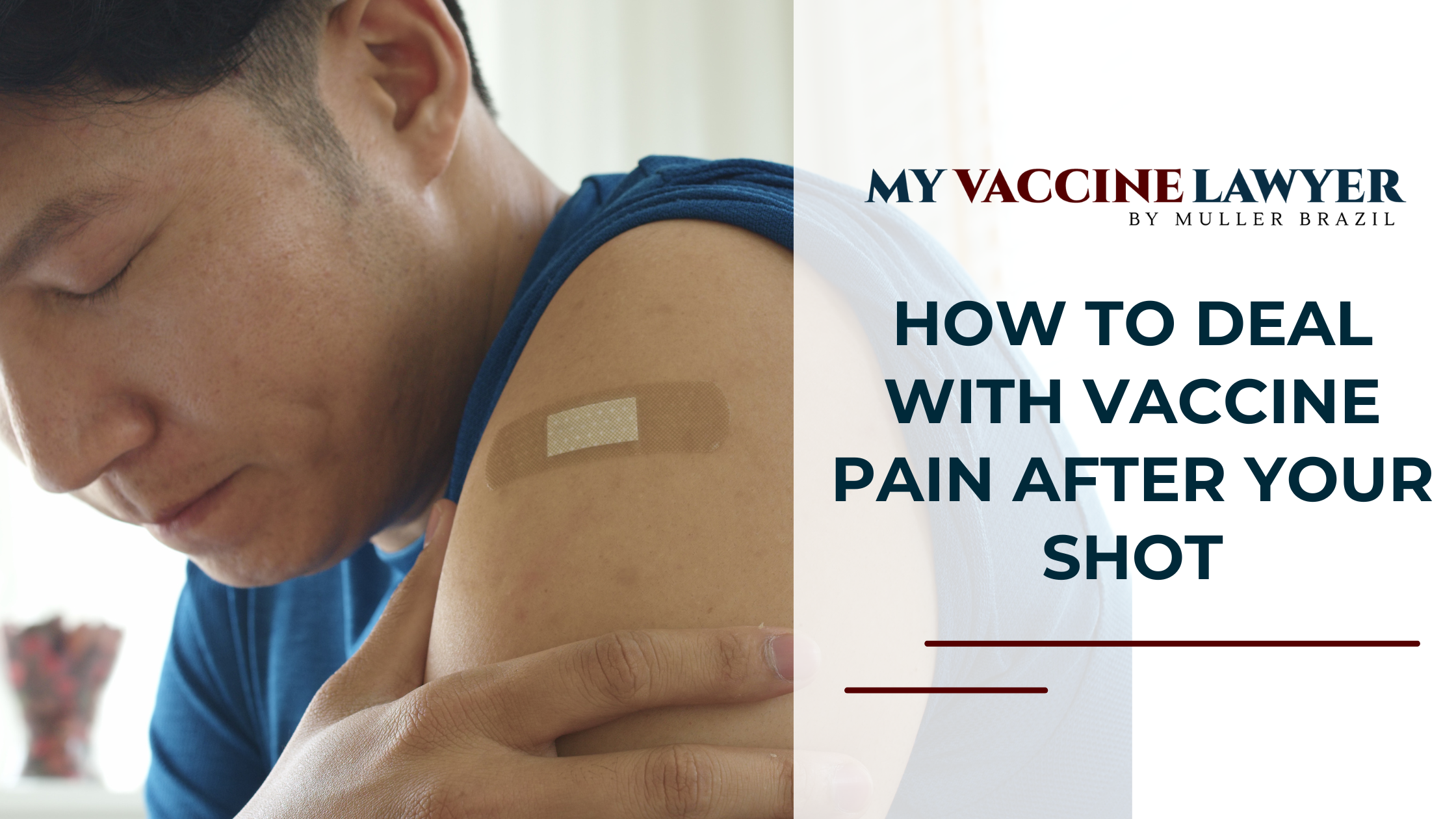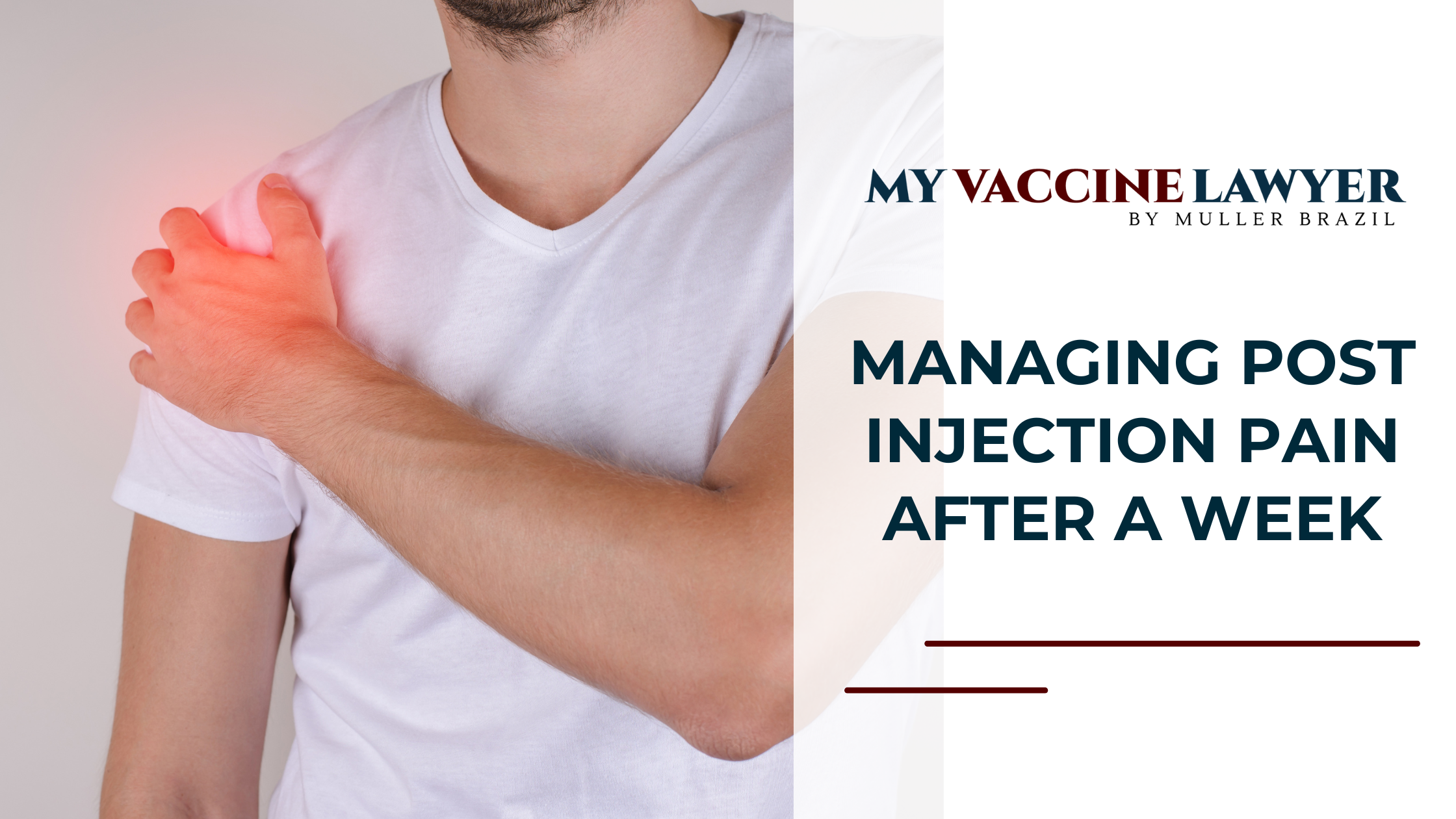Arm Hurts After Vaccine? Causes and Relief Tips
If you're feeling arm pain after a vaccine, it's common and usually not serious, often caused by your body's reaction to the vaccine which causes...
5 min read
Vaccine Injury Law Resources / Arm Pain / Why Does My Arm Hurt After a Shot? Causes & Relief Tips
 Paul Brazil
:
Nov 18, 2022 1:57:02 PM
Paul Brazil
:
Nov 18, 2022 1:57:02 PM
If your arm feels sore after getting a vaccine like the flu shot or the COVID-19 vaccine, it's a common and usually harmless response. The soreness occurs because the vaccine is injected into your muscle, causing temporary irritation.
Vaccines activate your immune system, which can cause mild inflammation at the injection site as your body starts to build immunity. This discomfort typically clears up within a couple of days. Although it may be uncomfortable, this pain is minor compared to the vaccine's benefits in protecting against serious illnesses.
If you have a sore upper arm after your COVID-19, flu shots, or other vaccinations, you're not alone! While it might feel uncomfortable, it's common and usually nothing to worry about.
Let's take a peek under the hood to see what's happening:
These are both normal reactions; the good news is that they usually don't last long. In most cases, the discomfort fades within a day or two. Tingling in the arm and hand after a flu shot is less common and may indicate a more serious issue.
Remember, this arm pain is a small price for the benefits of staying healthy!
These are normal reactions and usually nothing to worry about. However, if you experience any concerning symptoms or the discomfort persists for over a few days, it's best to consult your healthcare provider. They can offer guidance and ensure everything is on track.
It's normal to feel a bit tender after your shot. Here are some simple tips to ease the discomfort:
If the pain worsens, lasts for several days, or you have additional concerns, consult your healthcare provider.
When discussing arm pain following vaccinations, it's important to explore various factors beyond the common expectation that it's a sign of the immune system reacting to the vaccine.
Here are some alternative reasons why an individual may experience pain after receiving a shot that could relate to negligence, adverse reactions, or other less commonly discussed factors:
Vaccines are important for keeping us healthy, but sometimes, things can go wrong and cause arm pain or other issues. While these problems are rare, they range from small annoyances to serious health concerns.
If you experience serious arm pain after getting a vaccine and think it might be due to a mistake during the vaccination, you may seek help through legal means.
Talking to a lawyer can help you understand if you can get support or compensation for your trouble. This is not just about solving your problem but also about ensuring vaccinations are done safely for everyone.
If you've received a vaccine, like a flu shot, and are experiencing problems with your injected arm, such as severe pain, swelling, or difficulty moving, it might be time to seek legal advice with My Vaccine Lawyer. Here are a few signs that you should consider talking to a lawyer:
Talking to a lawyer can help you understand your rights and whether you might be entitled to compensation for your injury. Remember, seeking legal advice is not just about compensation; it's also about ensuring that vaccination practices are safe and effective for everyone.
Muscle irritation around the injection site is common. As your body builds immunity, inflammation also causes soreness. Most arm pain fades within a day or two.
My arm is swollen after a shot. How can I reduce the swelling?
Applying a cool compress like a wet washcloth to the injection site for 10-15 minutes several times a day helps. Resting your arm and avoiding strenuous activities also reduce swelling. Consult your doctor if swelling persists or worsens.
Are swollen lymph nodes near the injection site normal?
Yes, slightly swollen lymph nodes can occur as your immune system responds to the vaccine. They usually return to normal size within a few days. If they remain swollen or become painful, consult your doctor.
Can I exercise if my arm hurts after a shot?
Gentle movement and stretches help improve blood flow and ease stiffness around the injection site. However, avoid strenuous activities for a few days as they can worsen pain and delay healing.
Paul Brazil is a native of Dunmore, Pennsylvania and a graduate of Dunmore High School. For his undergraduate education, he attended Bloomsburg University where he majored in political science. He then went on to earn his JD from Widener University School of Law. Following graduation from law school, Mr. Brazil worked at a large Philadelphia civil defense firm where he litigated workers’ compensation claims and Heart and Lung Act cases. In 2012, he joined with his coworker Max Muller to form Muller Brazil.

If you're feeling arm pain after a vaccine, it's common and usually not serious, often caused by your body's reaction to the vaccine which causes...

For most adults and older children, the soreness lessens within a few days. But for some, arm pain can linger longer than expected or feel more...

Injections are a common part of medical care, whether for vaccinations, medications, or other post injection inflammation treatments.
